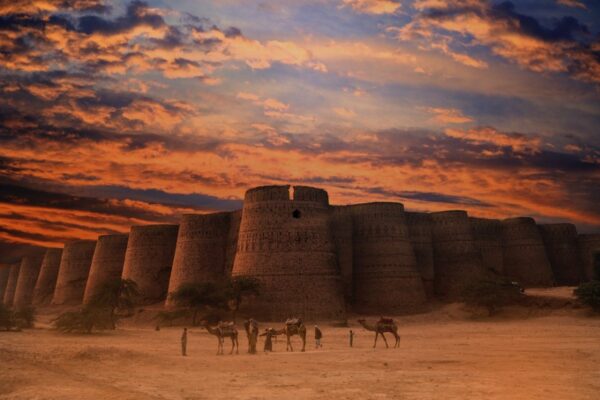For thousands of years, astronomers have wrestled with fundamental questions about the universe. Until the early 1920s, it was believed that the universe had always existed and that the size of the universe was fixed and did not change. However, in 1912, American astronomer Vesto Slipher made a discovery that would soon change astronomers’ understanding of the universe. Slipher noticed that the galaxies were moving away from Earth at tremendous speeds. These observations provided the first evidence for the theory of the expanding universe.
Hubble’s law
In 1916, Albert Einstein formulated his General Theory of Relativity, which stated that the universe must either expand or contract. The confirmation of the expanding universe theory finally came in 1929 from the hand of the famous American astronomer Edwin Hubble.
By observing redshifts in the wavelengths of light emitted by galaxies, Hubble discovered that galaxies are not stationary, but are moving away from us at a speed proportional to their distance from Earth (Hubble’s Law ). The only explanation for this observation was that the universe was expanding. Hubble’s discovery is considered one of the greatest in the history of astronomy. In 1929 he published the velocity-time relationship that forms the basis of modern cosmology. In subsequent years, with further observations, the theory of the expanding universe was accepted by scientists and astronomers alike.
But amazingly, long before telescopes were even invented and long before Hubble published his Law, Prophet Muhammad (PBUH) recited to his companions a verse from the Quran that ultimately stated that the universe is expanding.
“And the heavens We created with might, and surely We are the expander.” (Quran 51:47)
At the time of the revelation of the Qur’an, the word “space” was not yet known, and the word “heaven” was used to denote that which is above the earth. In the verse above, the word “heaven” refers to space and the known universe. The verse indicates that space, and thus the universe, is coincidentally expanding, just as Hubble’s Law states.
That the Qur’an mentions such a fact centuries before the invention of the first telescope, at a time when there was still primitive knowledge in science, is considered remarkable. This is all the more true when one considers that Prophet Muhammad (pbuh), like many people in his day, happened to be illiterate and simply could not have known such facts on his own. Could it be that he really had received a divine revelation from the Creator and Founder of the universe?
The Big Bang Theory
Shortly after Hubble published his theory, he discovered that not only were galaxies moving away from Earth, but they were also moving away from each other. This meant that the universe is expanded in all directions, in the same way that a balloon expands when it is filled with air. Hubble’s new findings laid the foundation for the big bang theory.
The Big Bang Theory states that the universe formed about 12-15 billion years ago from a single extremely hot and dense point, and that something triggered the explosion of this point that triggered the beginning of the universe. Since then, the universe has expanded from this one point.
Later, in 1965, radio astronomers Arno Penzias and Robert Wilson made a Nobel Prize-winning discovery that confirmed the Big Bang theory. Prior to their discovery, the theory implied that if the only point from which the universe originated was extremely hot initially, then remnants of this heat would have to be found. This residual heat is exactly what Penzias and Wilson found. In 1965 Penzias and Wilson discovered a Cosmic Microwave Background radiation (CMB) of 2.725 degrees Kelvin that spreads through the universe. It was therefore assumed that the radiation found was a remnant of the first phases of the Big Bang. Currently, the Big Bang Theory is accepted by the vast majority of scientists and astronomers.
In the Quran
It is mentioned in the Quran:
“He (Allah) is the Creator of the heavens and the earth…” (Quran 6:101)
“Is He who created the heavens and the earth not able to create such things? Yes, and He is the Knowing Creator. His command is only when He wills a thing, He says to it, ‘Be,’ and it is.” (Quran 36:81-82)
The above verses prove that the universe had a beginning, that God was behind its creation, and that all Allaah has to do to create is to say, “Be,” and it is. Could this explain what caused the explosion that triggered the beginning of the universe?
The Quran also states:
“Did not those who disbelieve consider that the heavens and the earth were one, then We separated them and made all living creatures out of water? Will they then not believe?” (Quran 21:30)
Explanation Muslim scholars
Muslim scholars who have explained the previous verse mention that the heavens and the earth were once one, and then God caused them to be separated and formed into the seven heavens and the earth. But due to the limitations of science and technology at the time of the Qur’an’s revelation (and for centuries after), no scholar was able to give much detail about exactly how the heavens and the earth were created. What the scholars could explain was the precise meaning of each word in Arabic in the verse, as well as the overall meaning of the verse.
In the previous verse the Arabic words ratq and fataq are used. The word ratq can be translated “unity” “stitched together” “joined together” or “closed”. The meaning of these translations all revolve around something that is mixed and has a separate and distinct existence. The verb fataq is translated “We have detached them” “We have torn them apart” “We have separated them” or “We have opened them”. These meanings imply that something comes into existence through an act of splitting or tearing apart. The germination of a seed from the ground is a good example of a similar illustration of the meaning of the verb fataq.
Conclusion
With the introduction of the Big Bang theory, it soon became apparent to Muslim scholars that the details mentioned in relation to the theory coincide identically with the description of the creation of the universe in verse 30 of chapter 21 of the Qur’an. The theory states that all matter in the universe originated from a single extremely hot and dense point; that exploded and brought about the beginning of the universe agrees with what is stated in the verse, namely that heaven and earth (thus the universe) were once joined, and then split apart. Again, the only possible explanation is that Prophet Muhammad actually received a divine revelation from God, the Creator and Originator of the universe.






